Planning a cruise is almost as much fun as the cruise itself. Cruising is one of the best ways to travel and experience new parts of the world. You will be able to participate in activities you’ve never experienced before. It is also a great way to meet people worldwide and make lifelong friendships and memories.
In the planning stages of booking a cruise, do your research to ensure that all the activities and experiences match what you are looking for in an ideal itinerary.
Many other factors need to be considered, such as your overall budget, the destinations you wish to travel to, which cruise line you choose to set sail with, the specific ship, and so much more.
There are many different cruises for you to choose from. You can take an ocean cruise, a river cruise, a themed cruise, a cruise to nowhere, a cruise specifically to visit a certain port, a long cruise, a short cruise, etc. The choices are endless but also important. You want to be sure your final choice is exceptional.
In the post titled “5 Best Cruises for Seniors” we have outlined 5 cruises from adult-only to family oriented. The accommodations can range from the least expensive in a room without a view to other cruises that only offer suites and private verandas.
You do not have to pay for opulent cabins to have a good time. Just being on a cruise ship is exciting. You get access to the amenities on the boat regardless of the location of your cabin.
The advantage of a very expensive cabin is that you may have your own verandah, your own butler, and access to specialized restaurants. But you do not need these amenities to enjoy a cruise. The port expeditions are the same for everyone.
The following guide will help you make the right choice for you.
How to plan a cruise for the first time
Planning a cruise can be confusing, whether it is your first time or your tenth, so it’s important to plan everything down to the finest of details. When it is time to set sail, you can kick up your legs and let your hair down because you know that you don’t have to worry about any of the details.

The most important factors on how to plan a cruise include defining the budget, choosing the destination, the itinerary, the cruise line, and the specific ship.
Take into consideration additional costs including upgrading your rooms, restaurant reservations, and extra activities. Decide the dates on which you wish to travel, as this will influence the cost and the weather of your chosen destination.
The only difference between frequent cruise goers and first-timers is that those more experienced will have an idea of the cruise lines and ships they like and what itinerary suits them best.
How far in advance should you plan a cruise?
The earliest time you can book your cruise is when the itineraries are released by cruise lines, which is typically 18-24 months in advance. Whether you board your chosen cruise depends on the amount of space available and how popular your chosen cruise line is.
Don’t set your heart on a particular cruise unless you book it early. If you want a specific stateroom it is also best to book in advance. Some of the more popular cruises fill up fast but many may still have available rooms up until the time the ship sails
You should be able to book the cruise you want although you may not get that specific cabin. However, it is not worth taking the chance that you will be left behind, so make arrangements as early as possible.
What to do before planning a cruise
As previously mentioned, research is of the utmost importance concerning how to plan a cruise. Avoid booking the cheapest option. That cruise may or may not be what you want or expect. So check out the price, the cruise line, as well as the room, and of course your itinerary.
Booking your first-ever cruise with the wrong cruise line and cruise ship will set you up for disappointment. It can potentially ruin your enchantment for cruising. And that would be a very sad state of affairs.
Another tip on how to plan a cruise is to ensure all your documentation is in order. Guests are responsible for all required legal travel documentation. The cruise line will publish on its site the items to pay close attention to.
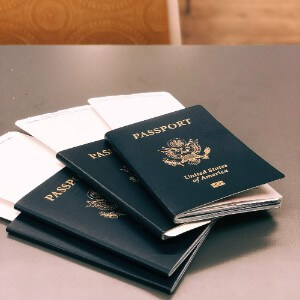
If your passport is close to the expiration date, it is recommended to renew it to ensure all is smooth sailing. Your passport should be valid for 6 months after the conclusion of your voyage.
Often it takes much longer than expected to renew your passport, so factor in that time. Other documentation includes visas, inoculation certificates, and family legal documents required for boarding and re-entry into your origin country.
How to choose a cruise itinerary
The cruise itinerary is dependent on the cruise line and cruise ship you decide to book with. Cruise ship itineraries are planned up to 24 months before the cruise sets sail by the managing department of the cruise line. They decide which ports to stop at and which activities you will be able to choose from for off-shore as well as on-board activities.

This is why deciding which cruise best fits what you are looking for is of the utmost importance. You are free to do as you please when you are off-shore.
However, the cruise port and time allocated there are wholly dependent on the cruise ship’s planned itinerary. After you’ve booked, you will be traveling to wherever the ship has planned to go.
The only time the itinerary changes dramatically are when unforeseen circumstances, such as intense weather conditions or unsafe surroundings occur, forcing the cruise to change destinations.
How do you prepare for a cruise?
Preparing for a cruise is pretty standard across the board. Whether it be 7 days, 5 days, or a month, the preparation process is relatively the same.

It is essential to pack based on the destinations you will be visiting. If it is a hot climate, pack light clothing. Pack casual wear for during the day, and typically something smarter for the evening.
Smarter evening wear is quite standard aboard cruise ships. If it’s a colder climate, pack warm clothing and plan on layering clothing to ensure you don’t get too cold.
Pack for any potential activities you might partake in. If you are going to a warm climate, always pack a bathing suit. Sitting on the pool deck is part of the cruise experience.
However, be realistic about your expectations. You and 2700 passengers are looking forward to the same amenities so you will definitely have company.
If you will be hiking pack active wear and hiking shoes. The same for every possible itinerary. You know where you are going so pack accordingly. Don’t forget your necessary medications, toiletries, and electronics.
Rest assured, if you somehow forget anything, there are usually shops onboard where you can find just about anything you would possibly need.
A very important item is to ensure you are on time for the ship’s boarding. Usually, cruises prefer that you sign in online 3 days before sailing to ensure you know exactly where you need to be and when.
If the embarking port is quite far from where you live, it is recommended to be there at least a day early to ensure you don’t miss your departure. There are always unseen circumstances that may occur, and the last thing you want is for the ship to leave without you. They will not wait so be sure to be timely.
How to plan a cruise – things to consider
1. Desired Length of Cruise

Many cruise lines offer a range of voyages lasting between 2 to 7 days long. Many ocean cruises visit places such as the Caribbean, Mexico, and the Bahamas.
Those voyages depart from coastal states in the United States. This means you may have to fly to your destination of departure and it may add a substantial amount of time and money to your cruise adventure.
Many Caribbean voyages are between 6-8 days, but you can find a 3, 4, or 5-day cruise as well. When you begin your cruising life, you may consider a shorter cruise as a first-timer. After you are hooked, you may not want to take any cruise shorter than a week.
Sailings longer than a week include ocean crossings or visiting destinations that are typically harder to get to and further away from your home base. World cruises allow you to visit several countries and can last up to and beyond 100 days, with a corresponding price tag as well.
2. Dates You Want To Cruise
One of the most important factors to take into consideration when booking your cruise is your preferred dates as well as the time of year.
Some guests seek the best possible deals and packages when booking a cruise. They may be willing to wait for the perfect time of year and may be flexible on the dates.
Others may have specific dates in mind and are willing to spend more money to ensure they cruise during their preferred dates.
The time of year you book your cruise can influence the amount it’s going to cost for the overall cruise. Cruises tend to be more expensive in the summer and the holiday seasons. If you’re searching for a cheaper option, you should consider booking your cruise during off-peak months.
Certain destinations or itineraries are only offered during certain times of the year so this may affect your timing. For example, Alaska cruises are only offered during the summer season and the warm Caribbean sounds good when your home base is covered in snow.
3. Your Cruise Budget

You must be attentive to your cruise budget when you consider how to plan a cruise. Are you looking for a more budget-friendly cruise line or are you willing to spend a massive chunk of change to experience the cruise of your dreams?
Budgeting will help you narrow down your cruise options substantially and simplify the rest of the planning.
Many popular cruise lines offer deals that include packages, promotions, and discounts all year-long which can help you save money for other expenses you may encounter. Cruises on newer ships, longer voyages, sailing to popular destinations, and bookings in higher-end cabins will cost quite a bit more than the brochure prices.
Cruises can be a budget-friendly form of vacationing because the price typically includes travel, accommodation, meals, as well as entertainment. There are many other additional costs many individuals lose sight of when going through the motions of how to plan a cruise.
Additional costs include taxes and fees, gratuities, shore excursions, specialty dining, drink packages, transportation to and from your embarkation point, WIFI, and so on. The costs (except transporation to your debarkation port) are all added to your bill daily and require payment at the end of your voyage. Even with all these additional costs, you can still have a great time while still staying within your budget.
Make sure you know what is and is not included in the cost of the cruise itself. Keep in mind, the cheapest option is not always the best option. If wi-fi is important to you, a more expensive cruise that includes this as part of your cruise package may be less expensive than booking a cruise and paying for all the add-ons.
The average voyage cost will vary dependent on the cruise line, cruise ship, destinations, and time of year. It can cost as low as $50 a day per person and as much as $500 a day per person and even more, depending on the options you choose. But remember, you get what you pay for and a cheaper cruise is exactly that, a cheaper vacation and probably not what is wanted.
4. Your Activities Expectations
Do you want a relaxing time on deck with the sun shining in the Bahamas? Or do you want an action-packed adventure canoeing next to the glaciers in Alaska?
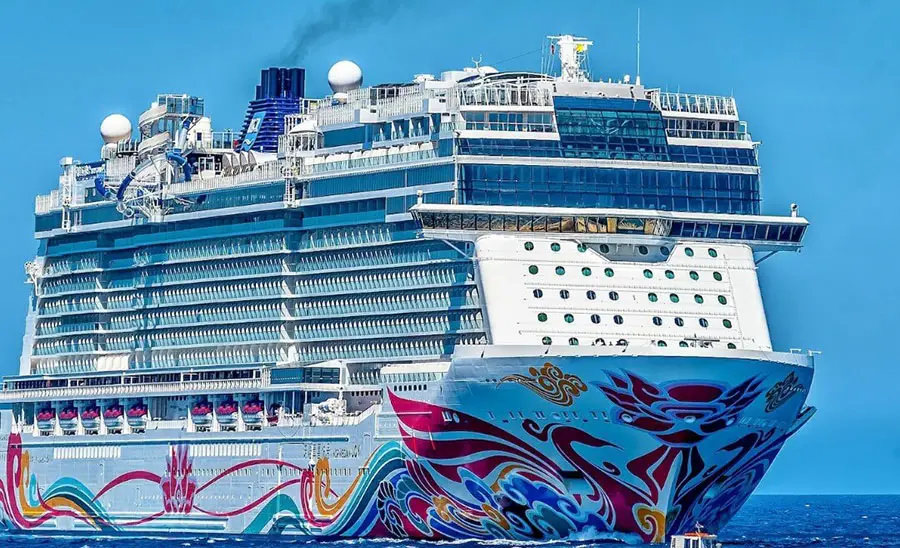

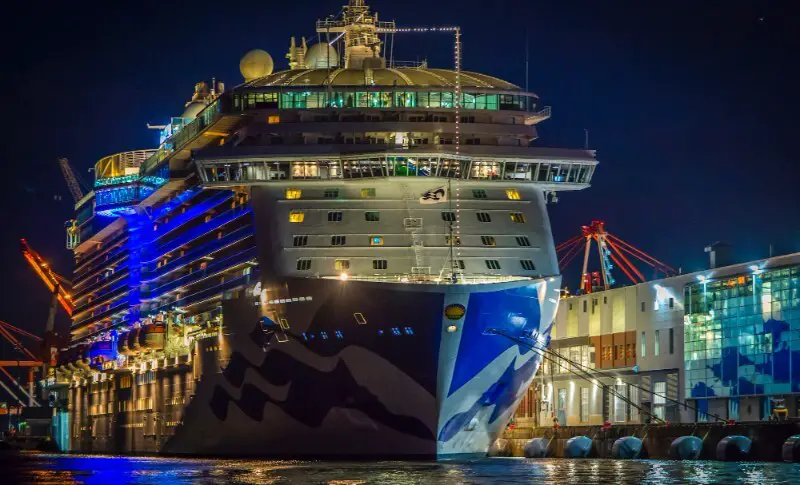
You can spend the bulk of your time exploring different ports and experiencing new cultures, or perhaps you prefer to enjoy the onboard amenities that a cruise has to offer. Only you can answer those questions and they will further help you narrow down your options.
Snorkeling cruises are always adventuresome. There are so many great places to snorkel. it would be difficult to visit all of the great locations available but you can give it a try.
Themed cruises are another option. The theme can be about a particular type of music (the Beach Boys) or a cruise with a game theme (mah jong or bridge). Perhaps you are a Star Trek fan and want to cruise with other like-minded individuals. It can be arranged.
Don’t forget about chartered cruises. Often a large company may charter a portion of or even a whole ship for their company. It might be for those employees who exceeded their sales quotas for the year. Or just for a thank you from a company that excelled.
5. Your Cruise Destinations
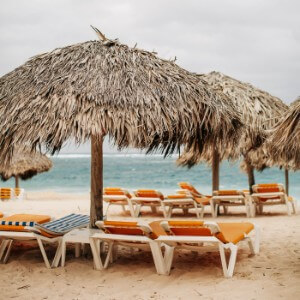
Next is the decision about what location you want to visit. Finding an itinerary that you love and one that has all the destinations you wish to visit is a challenging step.
We suggest finding a good balance between days at sea and off-shore destinations that allow you to explore new places and experiences.
If your goal is to relax and enjoy the ship’s amenities, then it’s best to find an itinerary that has more days at sea than stops at ports.
River cruises are also a possibility. They are as exciting as ocean cruises. You will travel in a smaller boat and visit exotic locations. Don’t discount a river cruise as they are one of the most popular and luxurious ways to explore the world’s waterways. You can visit ports that may not have been on your radar but you will be glad you did.
As Dr. Seus said:
“You’re off to Great Places!
Today is your day!
Your mountain is waiting.
So…get on your way!”
6. The Cruise Line
All of your endeavors in how to plan a cruise may fall below your expectations if you choose the wrong cruise line. It is important to research and find the right cruise line for you. Your decision must best suit your vacation style as well as your personality. There are great differences in cruise lines and your job is to find the one best suited for your style.
Each cruise line offers a slightly different style and approach to sailing the seas. While some cruise lines address the wants and needs of families and couples, others are appealing with their adult-only cruises.

Don’t let the name “adult-only” mislead you. An adult means an individual over the age of 18. A cruise may limit the age of passengers to those over the ages of 12, 16, 18, or 21.
It is their call so read the fine print before assuming the passengers are over the age of 40, 50, or 55.
Cruise Lines:
- Azamara Club Cruises – focuses on personalized service and the cruise experience. Probably not best for a first cruise due to the cost.
- Carnival Cruise Line – is known for its fun, upbeat, younger guests and party-like atmosphere. It is the perfect cruise for you if you never want the party to stop.
- Celebrity Cruises – is more on the pricey side, Celebrity Cruises offers a slightly more relaxed and classy experience for their guests. The service and food offered are the best.
- Cunard – is known for being luxurious and elegant. The price also reflects this.
- Disney Cruise Line – great for those young and old, Disney lovers will be living their never-ending fantasy on these voyages
- Norwegian Cruise Line – a fantastic option for those who want the control and flexibility to do as they please, whether it be dining whenever they want to what activities and excursions they wish to partake in.
- P&O Cruises – This cruise line is based in the UK and is not as popular in the US as others. However, they do offer adults-only cruises as well as cruises for families.
- Royal Caribbean – great for families and individuals looking for an action-packed experience they will never forget. With many top-notch amenities, entertainment, and activities to partake in onboard, Royal Caribbean has something to offer everyone.
- Viking Cruises – providing an all-inclusive experience, Viking Cruises is more on the pricey side.
- Virgin Voyages – an adult-only experience geared towards singles, Virgin Voyages is unconventional and quirky with its unique onboard activities. A plus to Virgin Voyages is that all onboard restaurants are included in the initial cruise pricing.
All cruises have unique niches that they are known for, with each different ship varying greatly in terms of onboard amenities and atmosphere. Some ships within a fleet offers all the bells and whistles, such as waterslides, laser tag, and casinos, whereas others are more standard. So, it’s up to you to choose the cruise line that best suits your tastes when you are looking at how to plan a cruise.
7. Your Cruise Ship
Many cruise ships travel together. The itineraries, time of year, and ships are all interconnected. Most of the time when you’ve chosen one the other two come alongside it. So, it’s up to you to decide which of the three is the most important to you and work your way from there.
Keep in mind the newer and more innovative ships will cost far more than the traditional cruise experience.
When choosing a ship it is important to consider all of these factors:
- How old is the ship
- How large is the ship
- If the ship is on the older side, how long ago was it last refurbished
- How many total guests will the ship handle
- The relative age of the guests
- Onboard entertainment, activities, and amenities
- The ambiance and atmosphere of the ship
- The food and dining situation
- The stateroom options, their sizes as well as additional features
- Included costs vs additional fees
The activities between ships vary so it’s important to analyze individual ships, not just a line of cruises. One ship may offer go-karting, aquariums, and clubs whereas another may not have those same amenities and activities.
8. Your Chosen Cruise Ship Stateroom
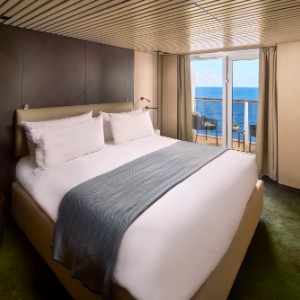
Now that you’ve decided on your budget, itinerary, destinations, cruise line, and cruise ship it’s time to pick your cabin.
The type of cabin/stateroom you choose will depend upon how much you’re willing to spend, the size of the room, where it’s located, and the additional amenities it offers.
These amenities can include a balcony, windows with views, or even whether it has windows at all.
It is important to pick the correct room that fits your needs. In its most basic version, your stateroom is where you sleep, shower, and place your belongings. At its highest level, it is where you go to and from within the ship or you simply relax and enjoy the view.
Types of rooms:
Interior (Inside) rooms offer no natural lighting but are great for those who wish to save their money for other amenities and activities. It also works for those who won’t spend much time in their cabins or those who prefer sleeping in darker spaces.
Ocean (Outside) view staterooms offer a porthole or picture window. They don’t open but they at least offer you natural lighting and breathtaking views. They are great for those on a budget.
Balcony (Veranda) cabins offer, most of the time, floor-to-ceiling windows with access to a small outdoor deck area. These rooms are usually slightly bigger, which is great for those traveling with a party or individuals who just prefer more space.
This room is also great for those who want some fresh air whilst in their rooms. But be cautious, some cruises will stipulate that some of these rooms may have an obstructed view.
Suites, the largest and most expensive rooms available to book, provide a large amount of space, with a balcony, and often include prestigious advantages.
These advantages include having a butler, concierge service, room cleaning around the clock, access to exclusive bars, lounges, restaurants, pools, priority embarking, theatre seating, as well as additional cabin amenities.
When choosing a cabin, it is imperative to consider how many people are included in your party, your budget, and whether you have special needs. These needs could include mobility issues that would require accessibility.
The location of your cabin is of the utmost importance:
- If you want to always be where the action is then book a room near the main areas of the ship, such as the casino, dining room, or theatre.
- If you want a quieter room then book your room far away from the action. Have a look at the ship’s layout before booking your room.
- If you are prone to seasickness then book your room in the mid-ship cabins, as they have the least amount of movement than anywhere else on the ship.
- If you spend most of your time exploring the ships and ports then consider booking an inside cabin to save money.
- If you wish to have complete privacy, great views, and fresh air, then a suite would be the best for you.
Take all of this into your final decisions on how to plan a cruise. Picking a room is of great importance as this is your base for the entire voyage and the only place on the ship which you can truly call yours during your cruise.
9. Booking Your Cruise
You have two options when booking your cruise. You can either book through the cruise line directly or book through a travel agency.
Booking directly with the Cruise Line
The advantage of booking directly with the cruise line is that if any unforeseen problems come up then you can deal with the issues directly with the cruise line and have the issue solved quickly.
The disadvantage to booking directly with the cruise line is that you can miss out on travel agencies’ additional savings and deals, such as free room upgrades and credits that can be used onboard for restaurants, shops, activities, and other amenities such as free WI-FI.
Booking through a Cruise Travel Agency
If it’s your first time booking a cruise, booking through a travel agency may be the best path forward as it can be complicated and confusing to do by yourself, especially if you’re unaware of all the information booking a cruise entails.
It all depends on how comfortable you are in booking your trip and how much assistance you believe you require.
You will be able to have access to exclusive deals and promotions when booking through a travel agency. They also help make the booking and planning process far simpler and easier than if you did it yourself.
Another determining factor could be whether you wish to travel with or without a passport. If you do not have a valid passport, this will create quite a few limitations. You’ll have to choose a closed-loop sailing. This is when you have a voyage that departs and returns to the same U.S. port.
This rules out traveling to places such as Europe, Asia, and Australia. You may not be able to enjoy the different destinations so check with the cruise line before booking.
Another advantage of booking through a cruise travel agency is that they will be in charge of all the details and will take care of all problems that may arise on your behalf.
Travel agents can also give great advice on any questions you may have and help you make the best possible cruise decision They also will inform you of anything that will improve your experience. They work hard to ensure that you have the best possible voyage.
The disadvantage to booking your cruise through a travel agency is that if they are not a reputable agency or have bad customer service skills and communication after booking your voyage, then it can be difficult to get in contact with them if any problems come up.
The cruise line will be unable to help or rectify the issue as you did not book directly with them, so their hands may be tied when it comes to assisting you with your issue.
If you book with a travel agency, make sure that you have personal recommendations or at the very least, they have great reviews online, are reputable, and have quick and helpful communication.
10. Choosing Shore Excursions and Booking Dining Reservations
Modern cruises offer on-board productions, specialty dining, once-in-a-lifetime entertainment, and an abundance of other activities.
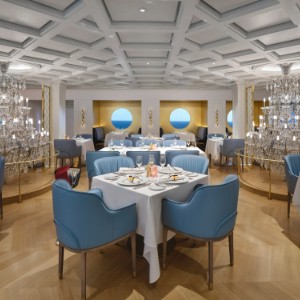
Your food is included with your cruise but cruise ships have found another income stream. If you want to eat at a themed restaurant other than the dining offerings that come with your cruise, you will have to pay extra for the experience.
Many of these activities fill up quickly. Some can be reserved onboard the ship, such as laser tag, go-karts, and escape rooms, to name a few.
Most of the fun on cruise vacations is being able to go onshore and explore new places and experiences. These activities can include bus tours, adventure experiences, food tours, and other fun activities and excursions.
Your cruise line will list the activities online at each port, allowing you to browse and pre-book whichever activities pique your interest. It is easy to pre-book and pay for your activities and excursions before your voyage begins.
You can also choose to book your port activities with groups that are not part of the cruise line. But beware, it is at your own risk. If you are late getting back to the cruise ship, it will not wait for you. However, if it is an activity scheduled through the cruise line, they will wait for you.
11. Buy Travel Insurance
How to plan a cruise includes purchasing cruise insurance. Make sure your budget includes this expense as it is important to take this preventive measure in case an issue arises.
Some travel insurance will cover payments to the cruise line if you can not make the cruise. However, read the fine print as they will only cover if certain conditions are met.
Medicare will not cover health emergencies if you are out of the US. Therefore you may consider cruise insurance to be mandatory. If you do not need it you will be sorry for the additional cost.
However, if there is a medical emergency, you will be glad you thought about it. It is for just in case a health issue arises or you get injured. Travel insurance should cover any of those unforeseen medical costs. Rather be safe than sorry when it comes to your well-being.
12. Travel to Your Embarkation Port

Booking transport, whether it be by bus, train, or plane, is imperative to ensure you are at the port well before the ship is scheduled to sail.
It is recommended to be at the embarkation port at least one day before boarding the cruise ship. So book whatever accommodation is required near the port so you can easily be there on time without any hiccups.
Also consider booking a room when you come back from your voyage at sea, as it’s stressful leaving such a big experience and immediately going home. So relax and take your time making your way home after your adventure.
Conclusion
When you are considering how to plan a cruise, it can be confusing and stressful. The process will be far less stressful and far more fun if you follow our guide and come to a conclusion about every aspect of a cruise!

You have so many choices for a cruise vacation so take your time in making decisions. Cruising is a fun experience that you will not forget.
Every cruise has something different to offer. The location, the activities, the passengers, the food, and the activities will all add to your remarkable vacation.
By following this guide, you can plan the perfect cruise vacation and create lasting memories. Bon, voyage!

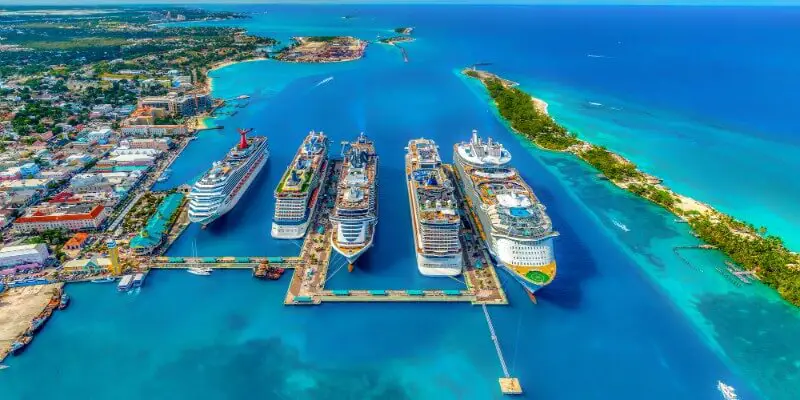







0 Comments